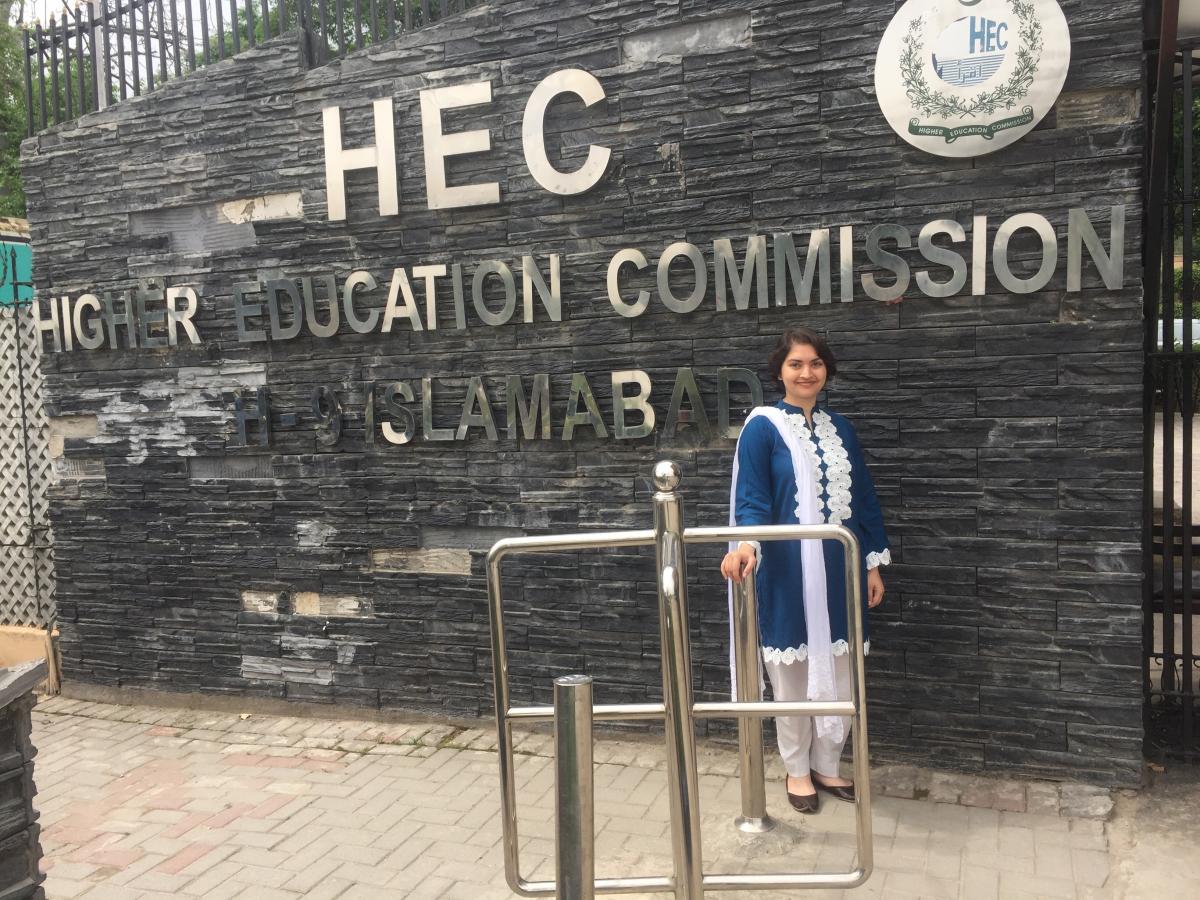Scroll down for the full interview

Since Anjum Malik graduated with an MA in Sustainable Cultural Heritage in 2019, we have been repeatedly impressed and made proud by the news of her professional achievements. We were lucky enough to catch her at the end of last year to find out more about what she has been doing since her time in the Eternal City, in particular her involvement in a ground-breaking project that is transforming the lives of women living in rural Pakistan.
Upon completion of the MA program, Anjum took on an internship with the Pakistan Higher Education Commission as Special Assistant to the Chairman, which gave her experience in the areas of policy implementation, organisational restructuring, and raising the digital profile of other young employees. She then volunteered as an Alumni Admissions Ambassador for her alma mater, Cornell University, in Pakistan, before assuming her current role as Communications Officer at the NGO Rural Support Programme Network (RSPN) and their project entitled SUCCESS: the Sindh Union Council and Community Economic Strengthening Support Programme.
The largest women-led rural development project in Pakistan, SUCCESS was established with the objective of uplifting people in rural communities through grassroots movement, bridging the gap between the communities and local governments that hinders progress and empowerment. Now in its sixth year, the project builds capacity at a grassroots level for rural communities to access facilities such as education, running water, access to jobs, and health services, to name but a few. Anjum emphasised that even the most basic public services had hitherto been inaccessible due to the harshness of the environment and the lack of means of communication with local authorities.
Reflecting on the obstacles to setting change in motion, Anjum said:
“Because our goal for this project was to promote women empowerment and reduce household poverty, it was necessary to first tackle the prevailing perceptions and conventions of the society, so that people would be open to being part of this project as opposed to getting suspicious.”
The hesitancy of rural communities to embrace development projects stems in part from their track record of implementing changes “top-down” rather than collaborating with the communities and giving a voice to their members. SUCCESS marks a break from this approach by listening to the people “on the ground” and making them the main agents for change in the program. Anjum participated in the production of a film showcasing the work and accomplishments of SUCCESS, and she advocated for women to be at its center:
“I specifically asked my field partners if they could go and get footage of women discussing accountability through digital governance, and the answers we got were phenomenally nuanced, and I think it speaks to the fact that there is a lot of negative stereotyping regarding people who are not from an urban context… That video, I think, really did go a long way in rejecting that”.
The film (featured below) was shown as part of the Civil Society 20 conference that took place in October last year, in which SUCCESS was invited to participate in a discussion on Accountability Through Digital Government – a fantastic achievement for the project.
Giving precedence to the communities’ own voice feeds into the project’s overarching goal of long-term sustainability. Women within the communities are trained as Community Resource People, who act as the link between awareness and empowerment. Their training prepares them to continue to enable positive change beyond the time when the SUCCESS team is no longer on the scene:
“When I speak with our rural partners and ask them how things were before our project came in, the overwhelming answer is that “We didn’t know that we had these rights, that we could do these things”, because for them, the norm was whatever limited role they had been given since birth. And now that they have been given the awareness and have a unified voice, it’s a real game-changer for them”.
Anjum recalled the challenges she faced when she took up her position at SUCCESS: at the same time as she was beginning her new job, Covid-19 was starting to spread rapidly in the Sindh province – precisely where she was supposed to be learning the ropes on a field visit and getting to know her colleagues and the communities they were working with. When the field visit ended prematurely and operations moved online, Anjum’s training from AUR came into its own: she credits her MA program as giving her a real appreciation for the importance of camaraderie within a group of peers or colleagues. With teamwork and cooperation being essential to the work SUCCESS, she made sure to establish optimal working relationships with her colleagues.
Exciting new endeavors are on the horizon for SUCCESS: an update in January 2021 from Anjum revealed that the project will add a new focus on entrepreneurhsip, while also building on existing collaborations and capacity-building. Anjum launched an e-magazine entitled What's Next For SUCCESS, with new editions published monthly - find them here.
Many thanks to Anjum for taking the time to speak to us about the fantastic and inspiring work that she is doing. We wish her all the best for the future, and look forward to hearing more about the future successes of SUCCESS!
